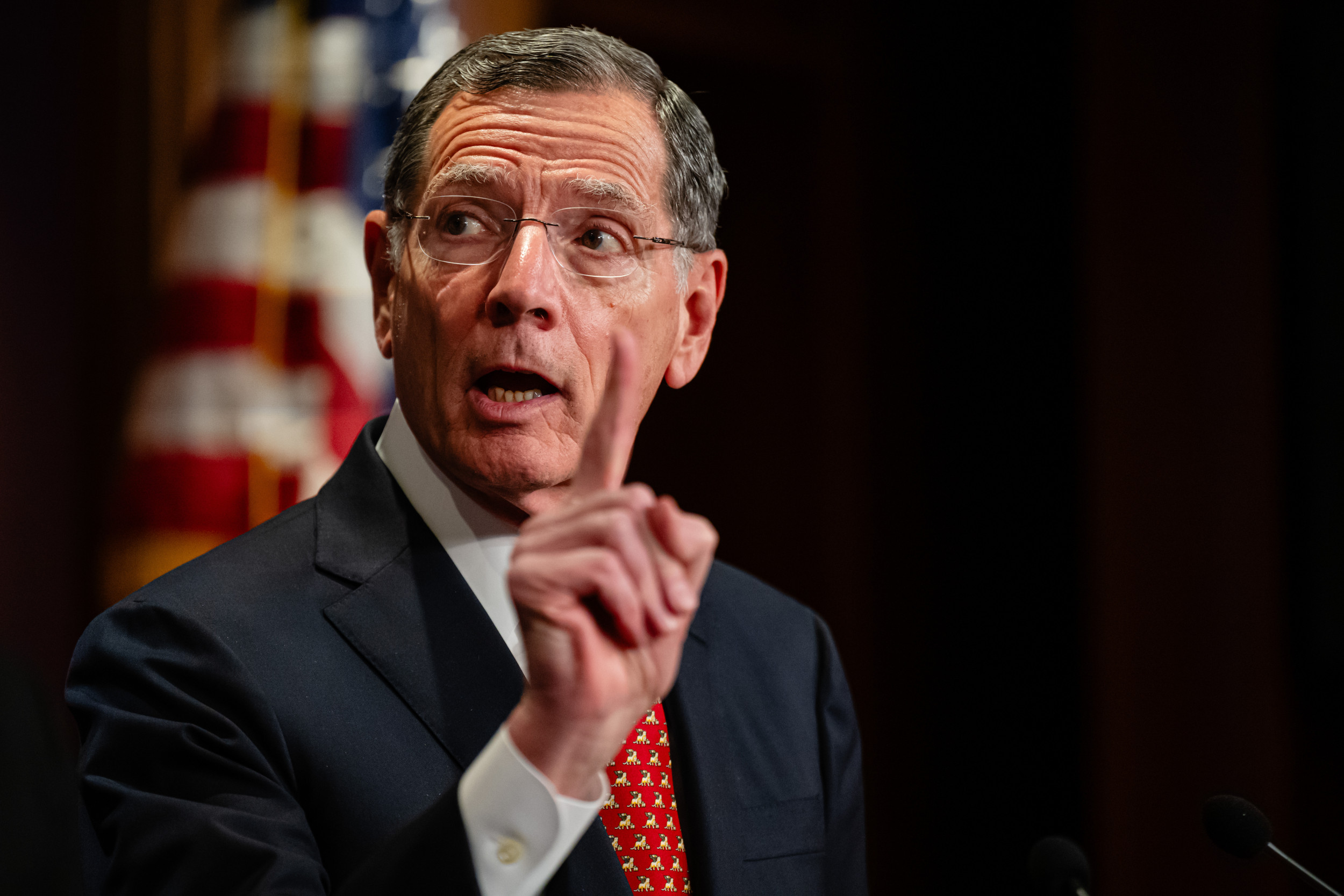Pete Hegseth, President Trump's nominee for Secretary of Defense, revealed his vulnerability to blackmail in a single damning statement. Asked by Megyn Kelly why he paid money to a woman accusing him of sexual assault, Hegseth responded, "I paid her because I had to—or at least I thought I did at the time. I had a great job at Fox and a wonderful marriage... It is not what I should have done, but I did it to protect that. I did it to protect my wife, I did it to protect my family, and I did it to protect my job. It was a negotiation purely to try to prevent that."
This is the essence of blackmail: coercion through exploitation. It's a dark and dangerous reality. And it disqualifies Hegseth from leading the Pentagon—or any national security role under longstanding federal policy.
National security regulations have been clear for decades: Individuals susceptible to coercion cannot hold sensitive positions. Executive Order 10450, signed in 1953 and still in effect, explicitly bars individuals with vulnerabilities—such as blackmail—from positions of national security. This principle is reinforced by Standard Form 86, the mandatory questionnaire for all national security roles, which screens for "vulnerability to exploitation and coercion."
Hegseth's admission aligns directly with these disqualifiers. He has already demonstrated a willingness to pay off his accuser, allegedly to protect his personal and professional life. As Secretary of Defense, his responsibilities would be infinitely more critical, and his adversaries exponentially more dangerous.
If Hegseth capitulated to blackmail once, what assurance do we have that he wouldn't do so again, this time with grave consequences for national security?

Even if we set aside the allegations of sexual assault, Hegseth's actions raise serious questions about his judgment, integrity, and maturity. He admitted to paying the settlement to shield himself from public scrutiny, yet he failed to disclose this critical vulnerability to President Trump or his transition team. A seven-year-old allegation of sexual assault, strongly denied, may not automatically disqualify a nominee. But Hegseth's decision to conceal the settlement—choosing self-preservation over honesty—is disqualifying.
Hegseth's statements about his drinking habits further compound concerns. Last month on The Megyn Kelly Show, he emphatically denied ever having a drinking problem, saying, "No one's ever approached me and said, 'Oh, you should really look at getting help for drinking.'" Yet his own words in earlier interviews contradict this claim. In an August 2021 appearance on The Will Cain Show, Hegseth admitted to heavy drinking, saying, "I'd look around at 10 o'clock and be like, 'What am I going to do today? How about I drink some beers? How about I go have some lunch and have some beers? How about I meet my one or two buddies and have some beers?'" He went on: "And one beer leads to many, leads to self-medication, leads to 'I've earned this.' Like, 'don't tell me I can't.'" Yet he insisted to Megyn Kelly that no one ever approached him about a problem. The contradictions in his accounts suggest a lack of self-awareness at best or outright dishonesty at worst.
Hegseth's defenders argue that his payments to his accuser are no different from President Trump's nondisclosure agreements. But this is a false equivalency. Trump's agreements never involved allegations of rape or sexual assault. Hegseth's settlement directly stems from such an accusation, making the stakes much higher and the comparison untenable.
Even if all the allegations against Hegseth were unfounded, his own mother's words offer a stark indictment of his character. In a leaked email, she described him as "an abuser of women" and accused him of "belittling, lying, cheating, [and] using women for his own power and ego." While she has since disavowed the email, the pain and detail in her accusations cannot be ignored.
Perhaps Pete Hegseth has changed. Maybe his claims of spiritual redemption are genuine. But that concerns his personal salvation—not the safety of the nation. As Secretary of Defense, his vulnerability to blackmail, inconsistent statements, and questionable judgment pose unacceptable risks.
The stakes are too high. The Senate must reject his nomination.
Greg Kelly is a host at Newsmax. He spent nine years on active duty as a jet pilot in the Marine Corps and an additional decade in the Marine Corps Reserves.
The views expressed in this article are the writer's own.




















 English (US) ·
English (US) ·